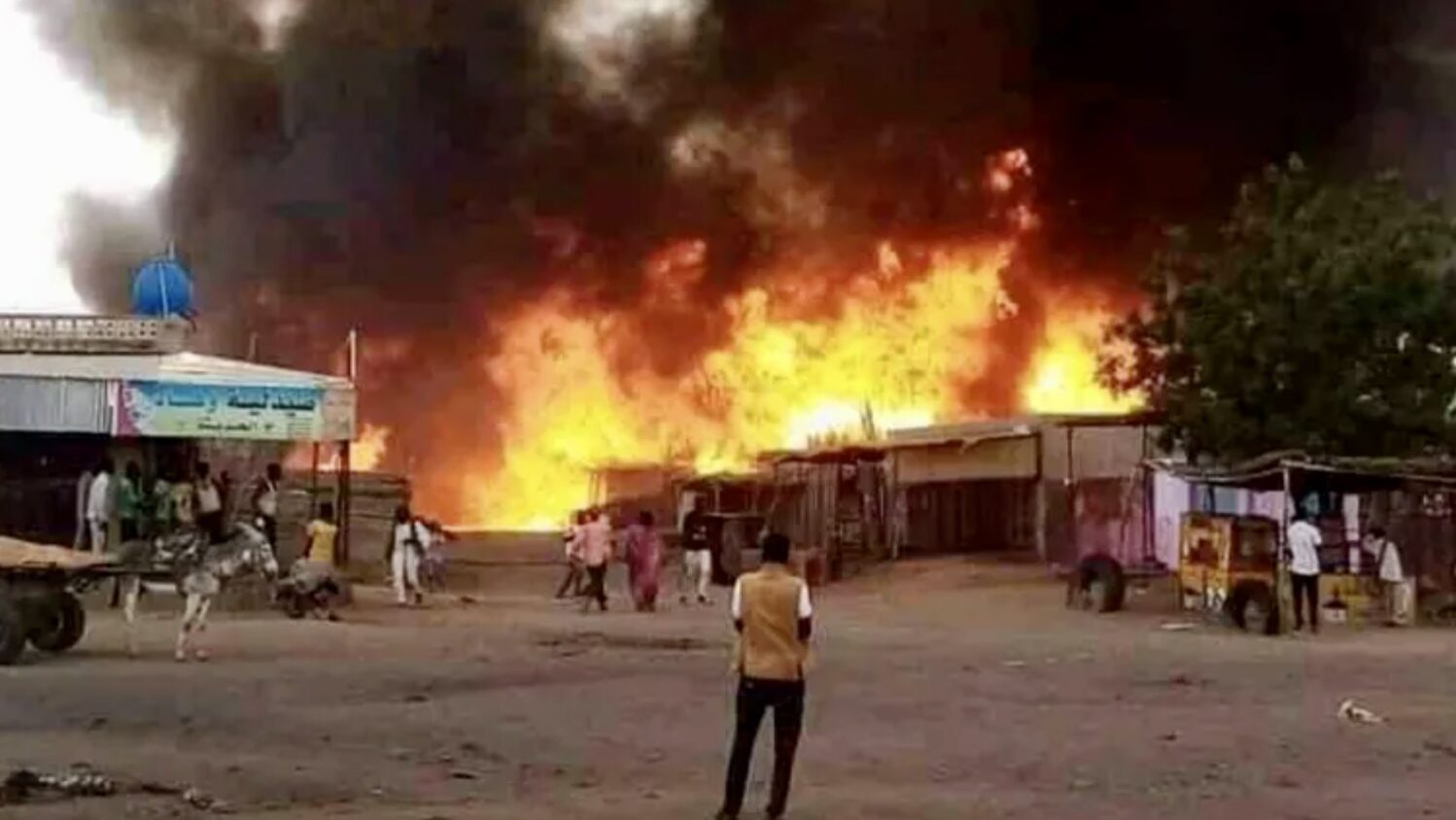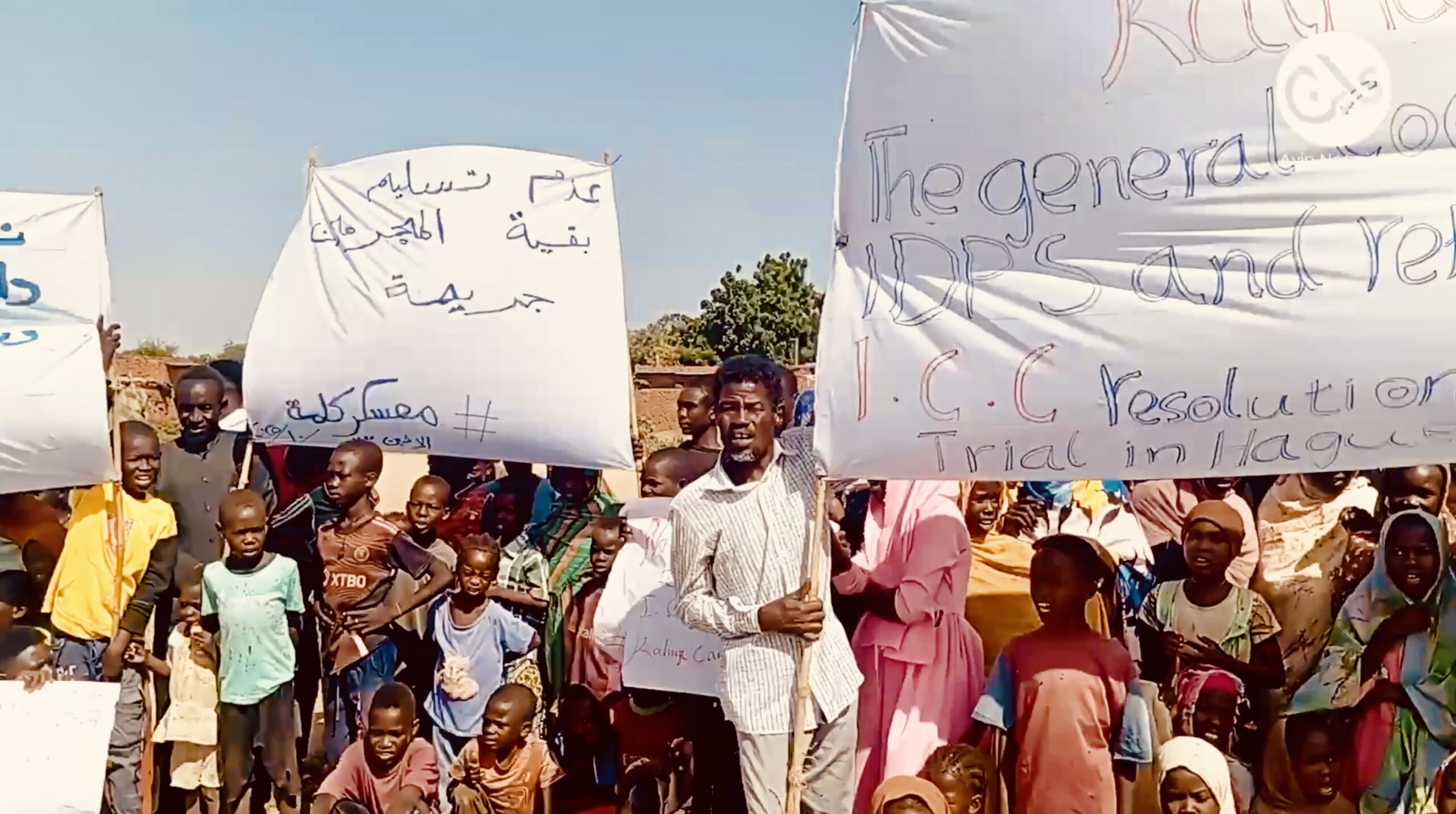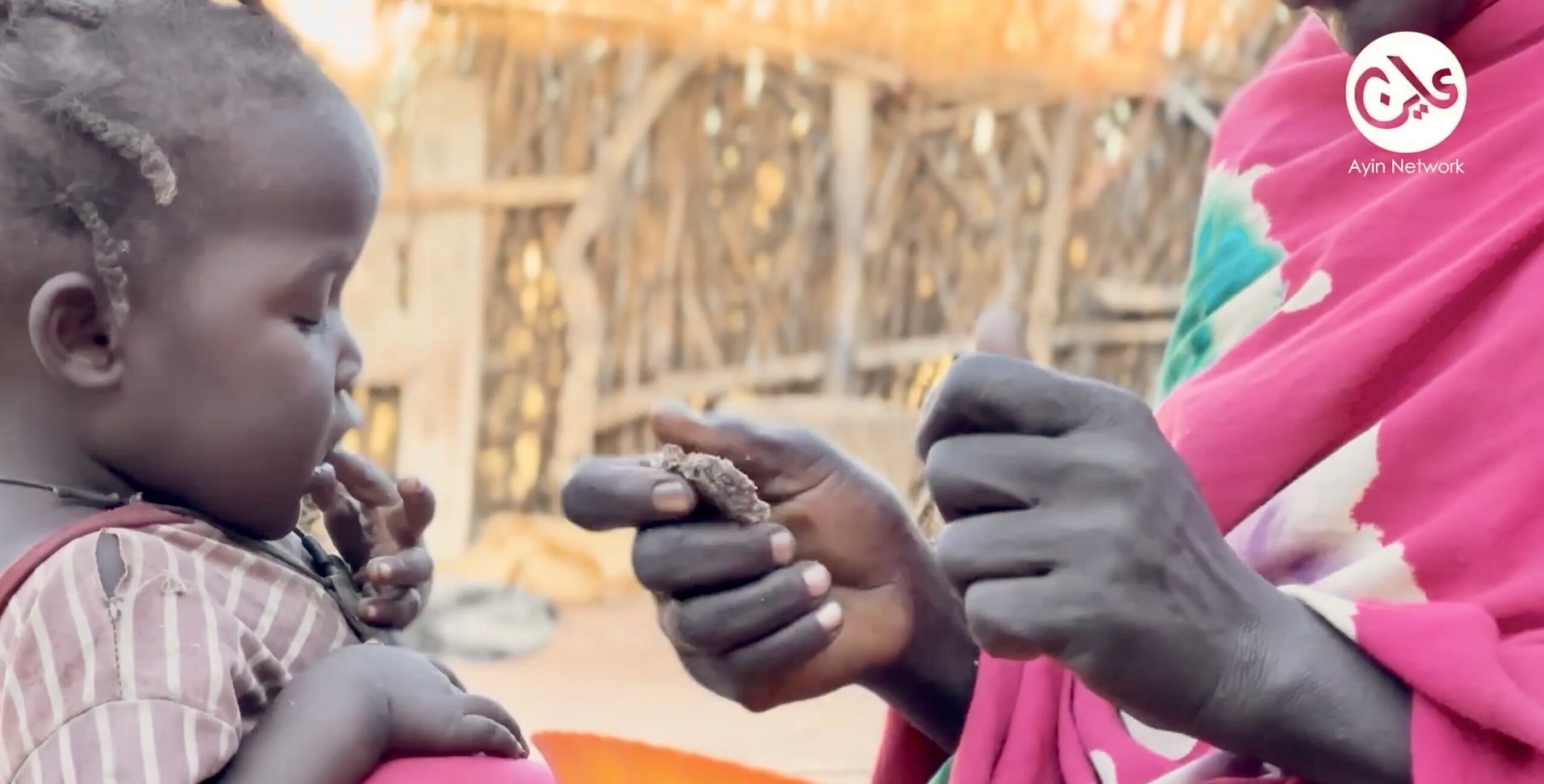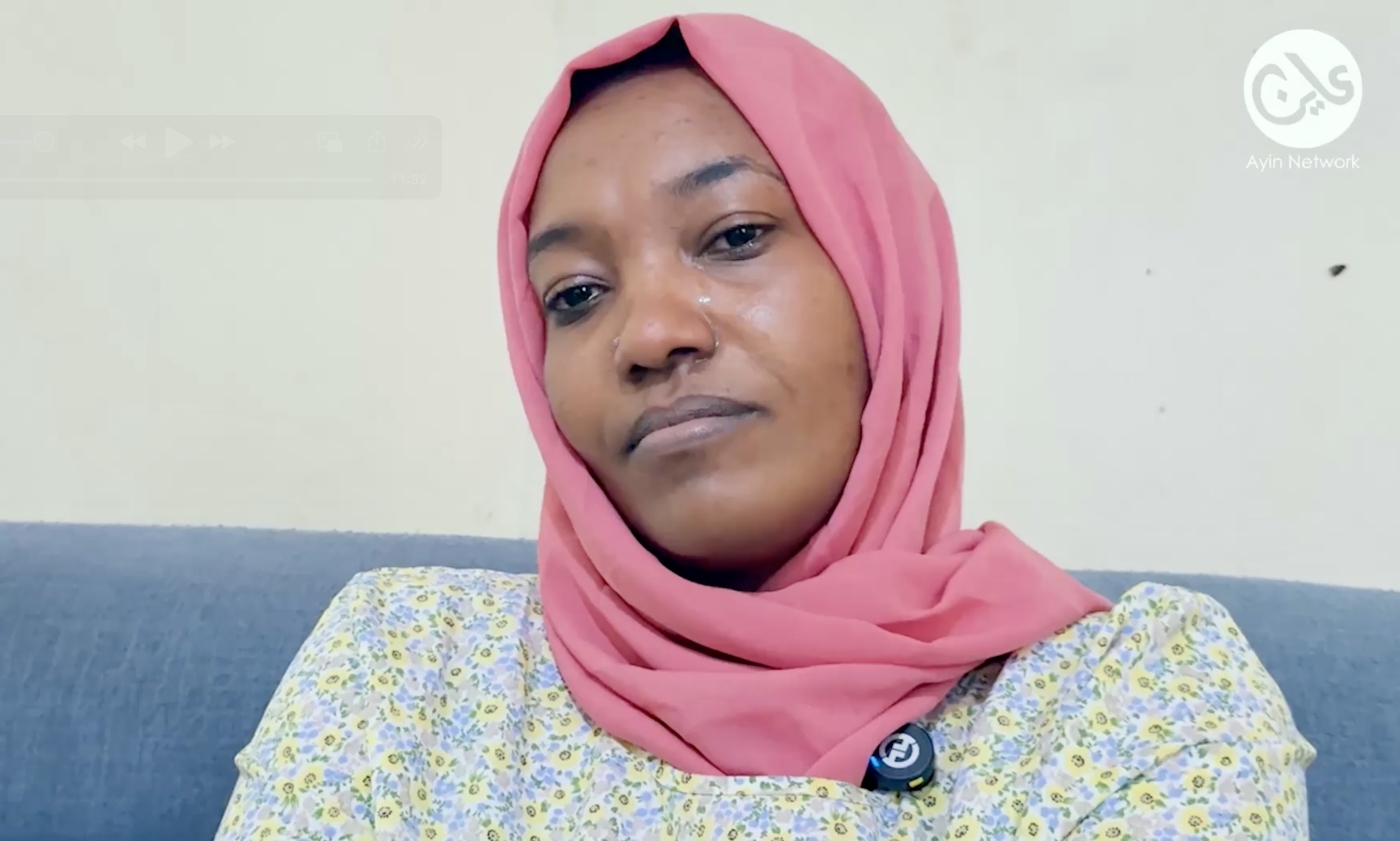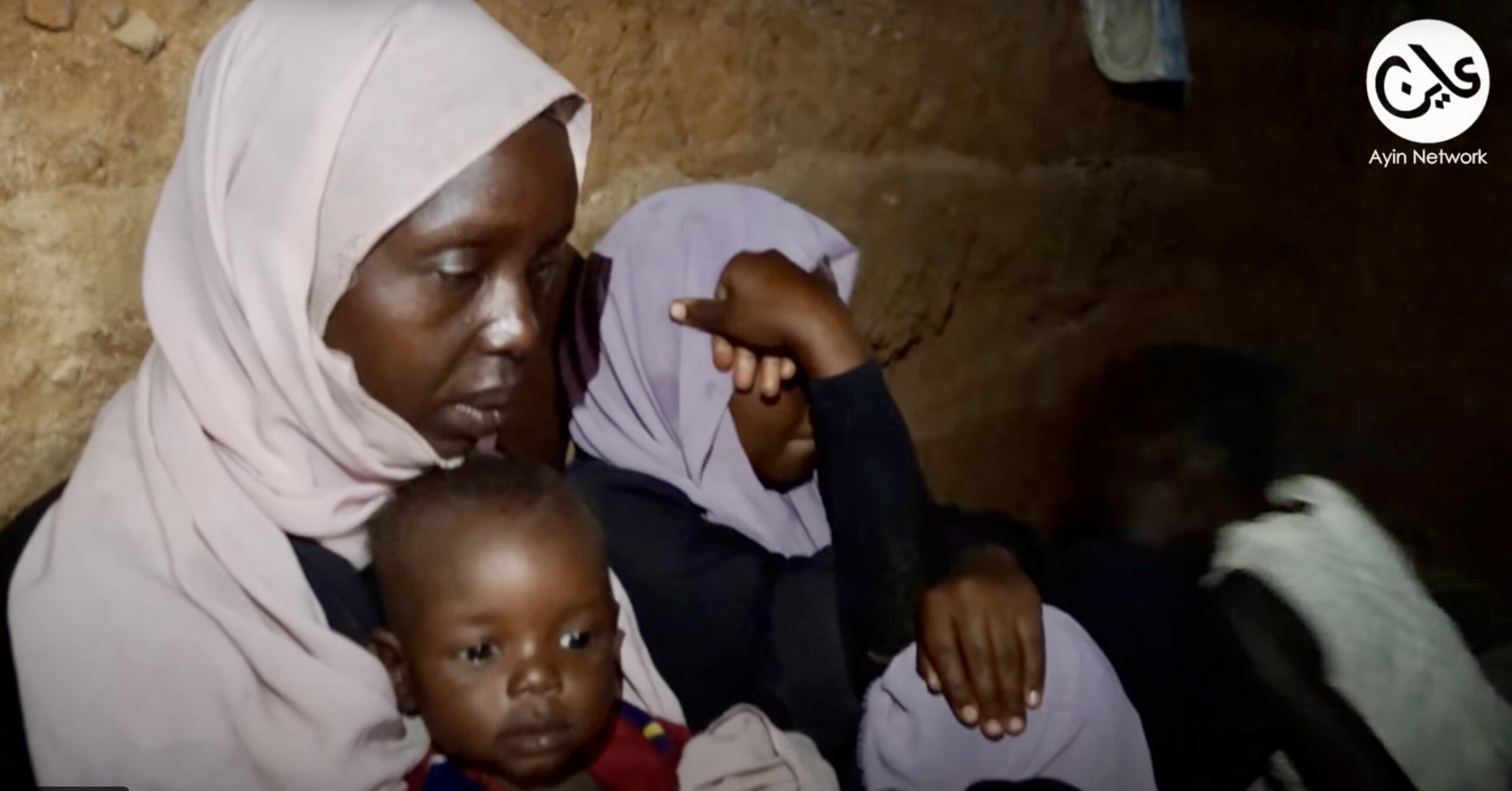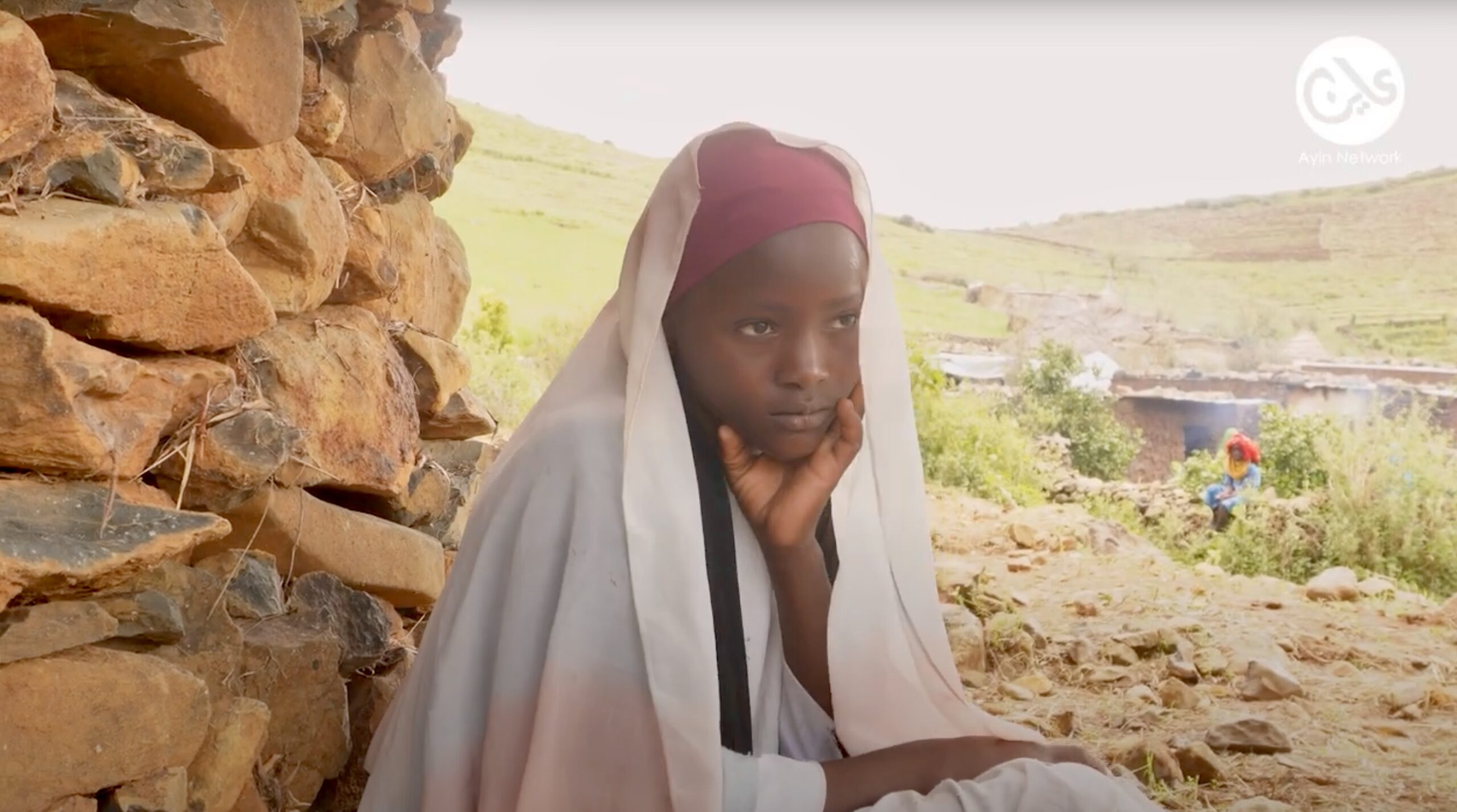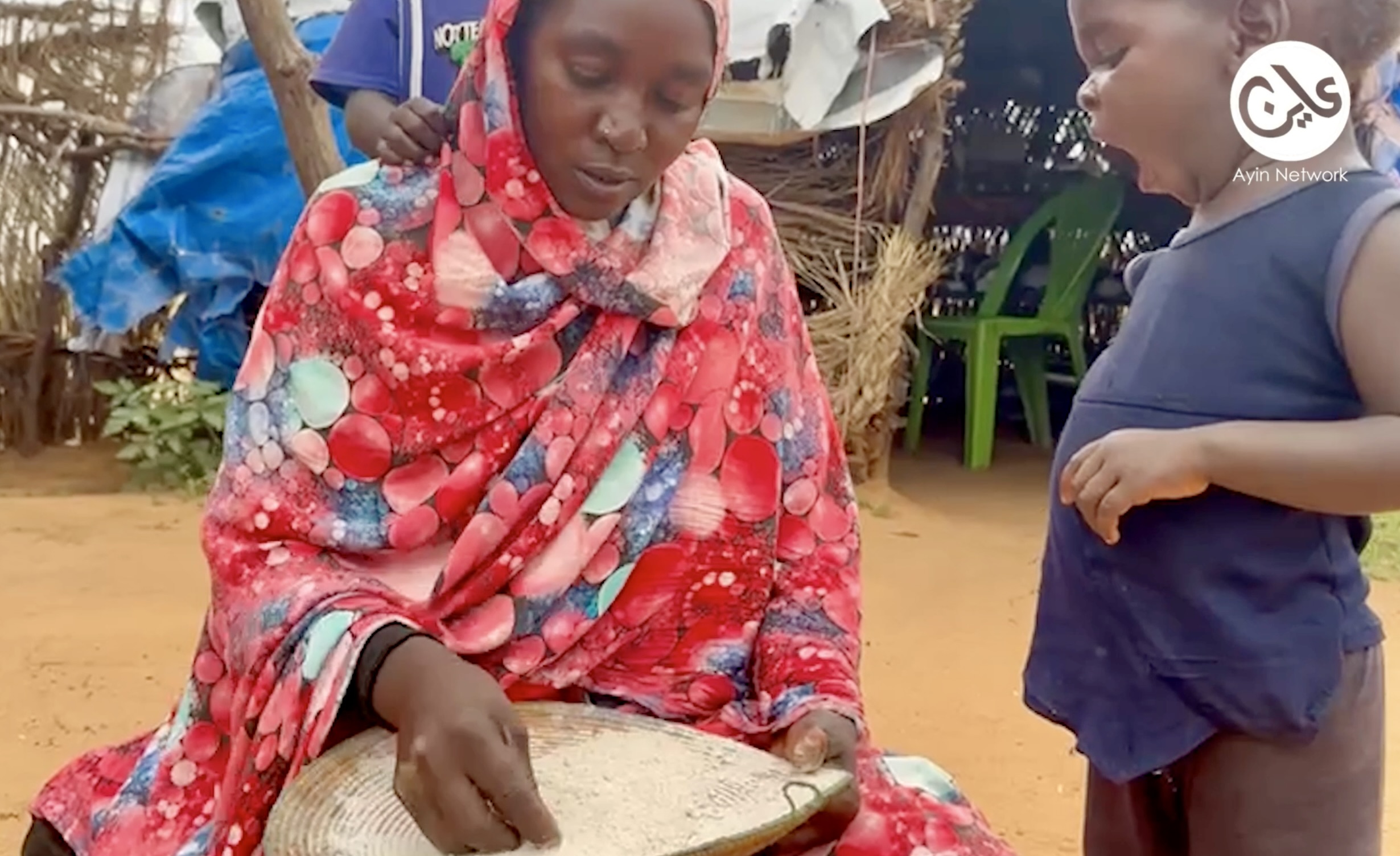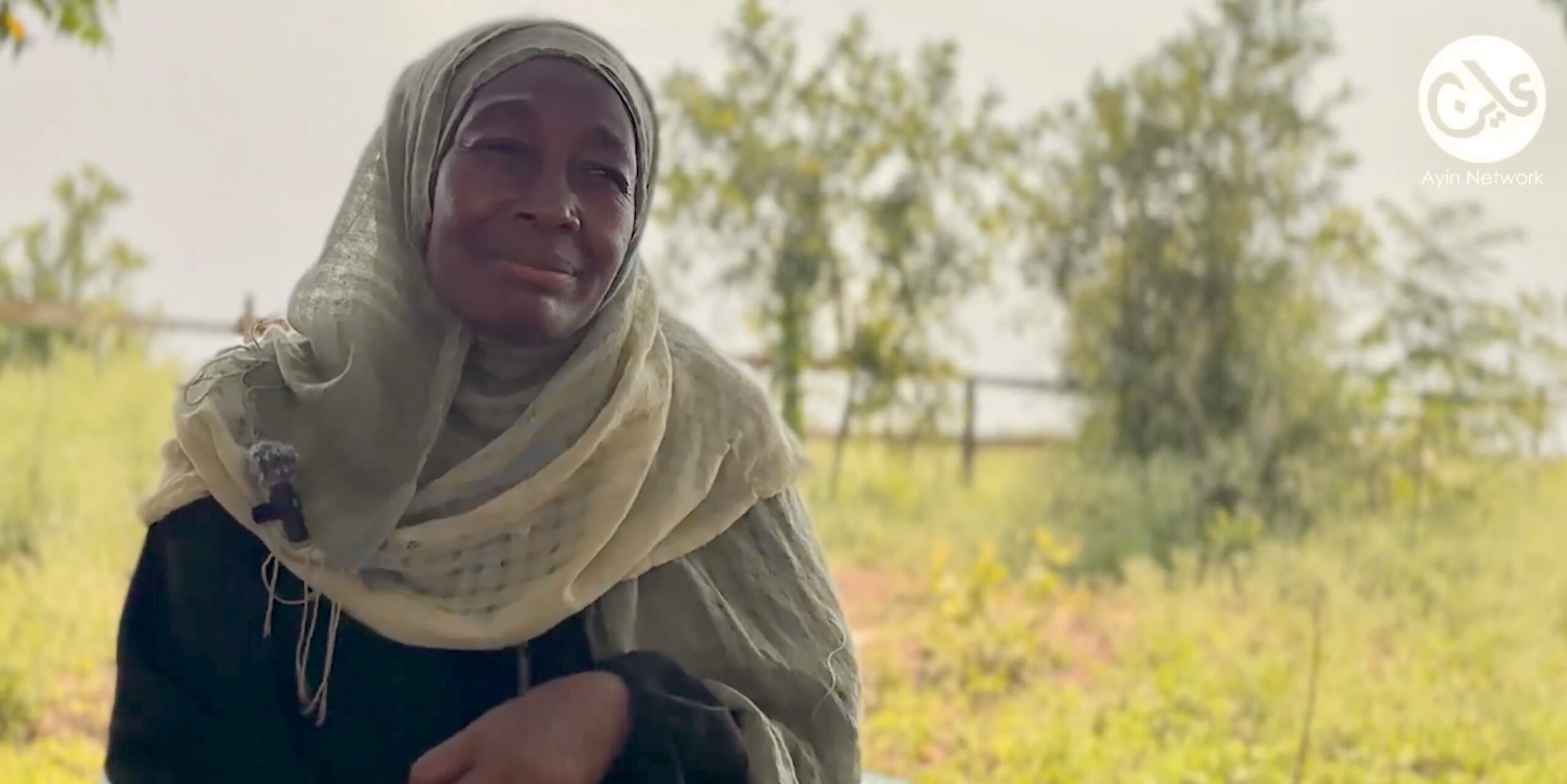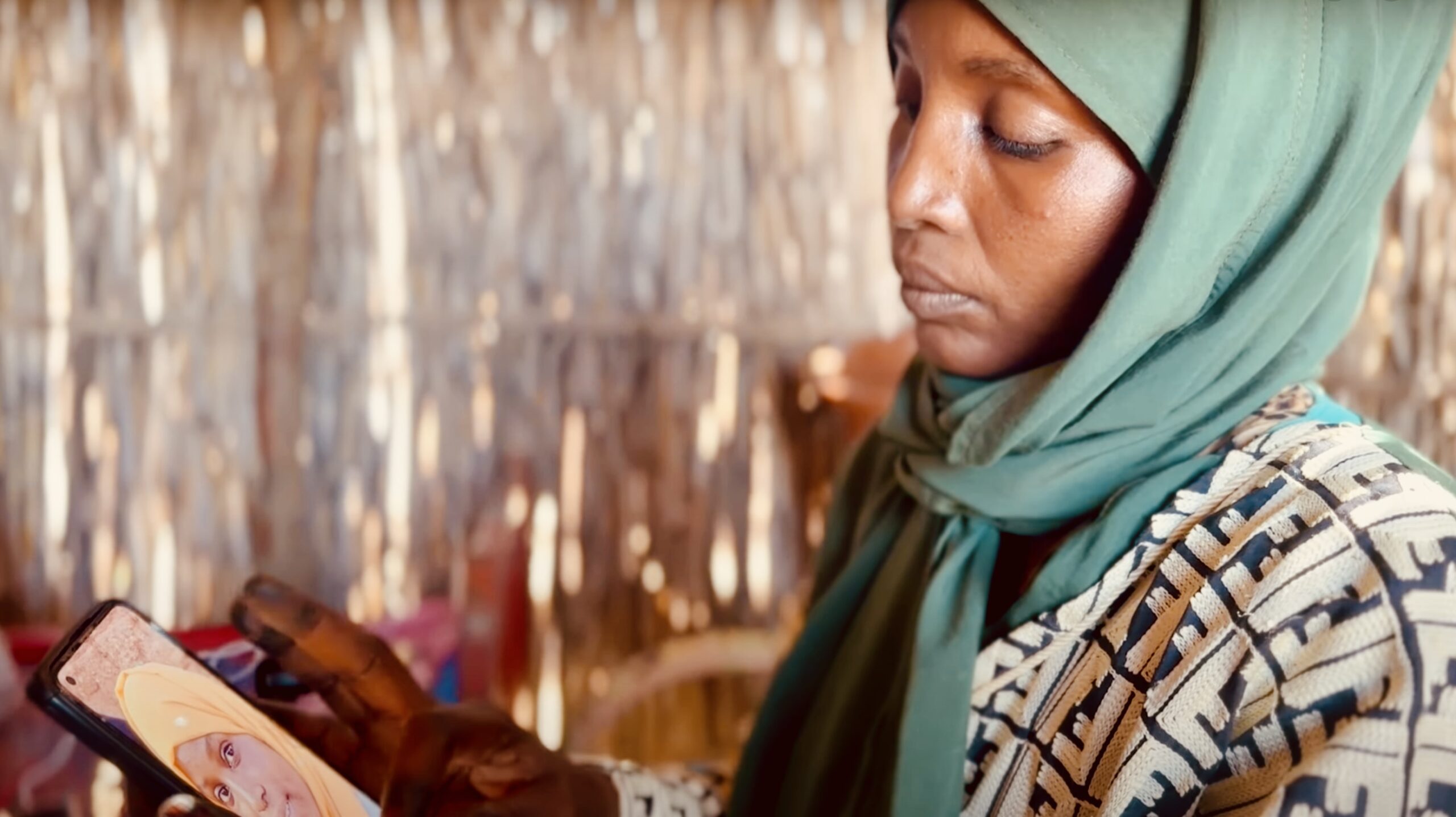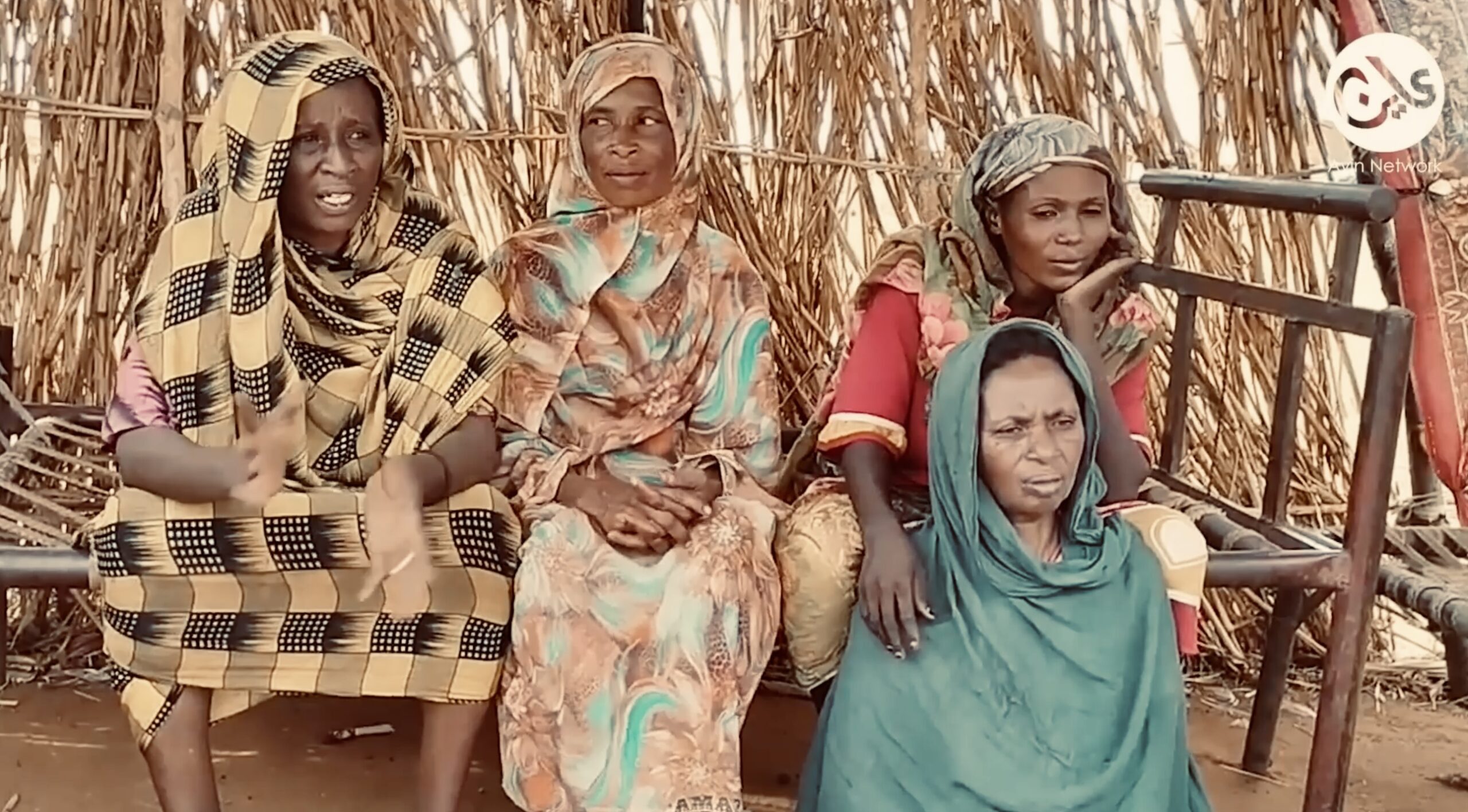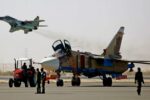Two towns in North Darfur – permanent targets for Sudan’s airstrikes
25 November 2025
Since March this year, the Sudanese army’s air force has conducted multiple airstrikes on the towns of Al-Koma and Kabkabiya in North Darfur State. Constantly targeted from the skies, the airstrikes have collectively killed over 160 people and injured countless more.
The airstrikes in the two towns targeted markets and health facilities, putting them out of service in addition to destroying drinking water stations, local residents told Ayin. All of this takes place in the absence of military battles in the two cities, which are located within the geographical area controlled by the Rapid Support Forces.
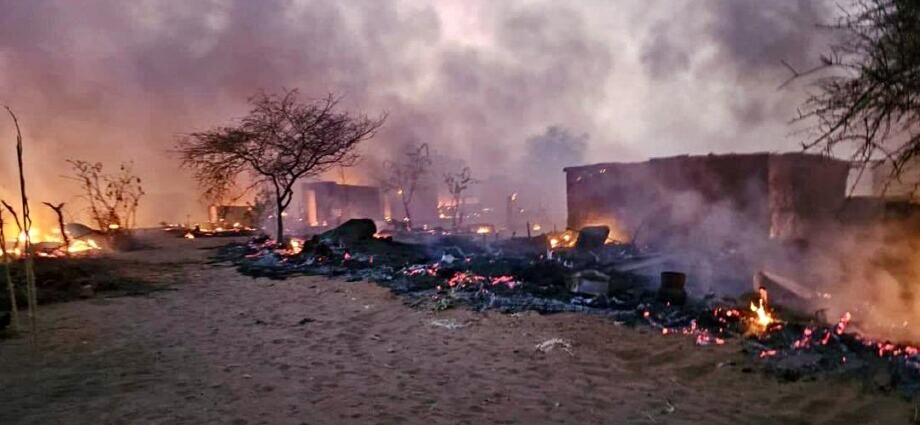
Al-Koma
The town has faced 52 airstrikes from March to November 2024, killing an estimated 132 people in total. A single attack in early October killed 61 people and injured 207, local residents said. According to local volunteers from the Emergency Response Rooms, youth-driven initiatives that support the conflict-affected, each warplane dropped around 6–8 bombs.
The bloodiest airstrike targeted the Al-Koma market on 4 October, killing 61 citizens, wounding 200 others, and destroying 53 shops and 132 cafes built with local materials, according to a count conducted by emergency room volunteers. Ayin also obtained a list of the names of the civilians killed in this massacre. On 8 November, Sudan’s air force bombed a critical drinking water source within Al-Koma, putting it out of service and putting thousands of citizens and livestock who depended on it to face thirst. The airstrike also hit Al-Farouq Primary School, killing one displaced citizen and injuring seven others. The school was being used as a shelter for the displaced coming from Al-Fasher, Nyala, and a number of other areas.
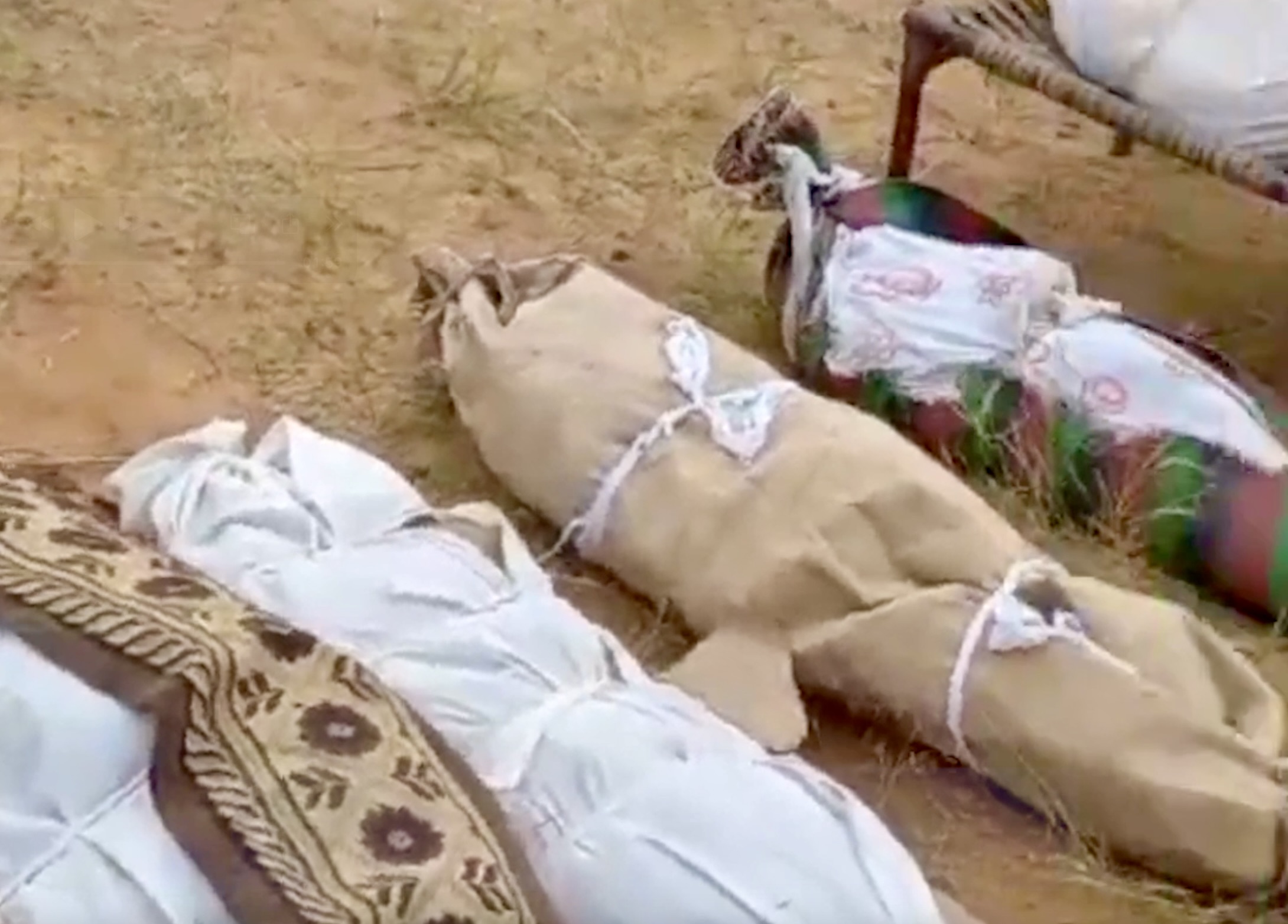
“The increasing aerial bombardment, which mostly occurs at night, has put citizens in a state of constant terror, while a large number have fled to the areas surrounding the town,” says Al-Koma resident Saleh Haren. The night-time bombings have become so frequent, Haren added, that some citizens leave their homes at sunset every day and sleep in fields and farms outside of the town to avoid the air strikes. In the morning they return, nervously, to eat and change their clothes.
Critical markets such as Umm Durur, once a lifeline for Al-Koma residents, remain closed after airstrikes in October, a local trader told Ayin.
According to Ibrahim Omar Obaid, a local volunteer with the Emergency Response Rooms (ERR), there are 19 shelters for the displaced in Al-Koma since the town had become a haven for displaced people from different parts of Darfur and Kordofan regions prior to the bombings. Now these displaced, many being women and children, live in constant fear of the airstrikes, Omar said.
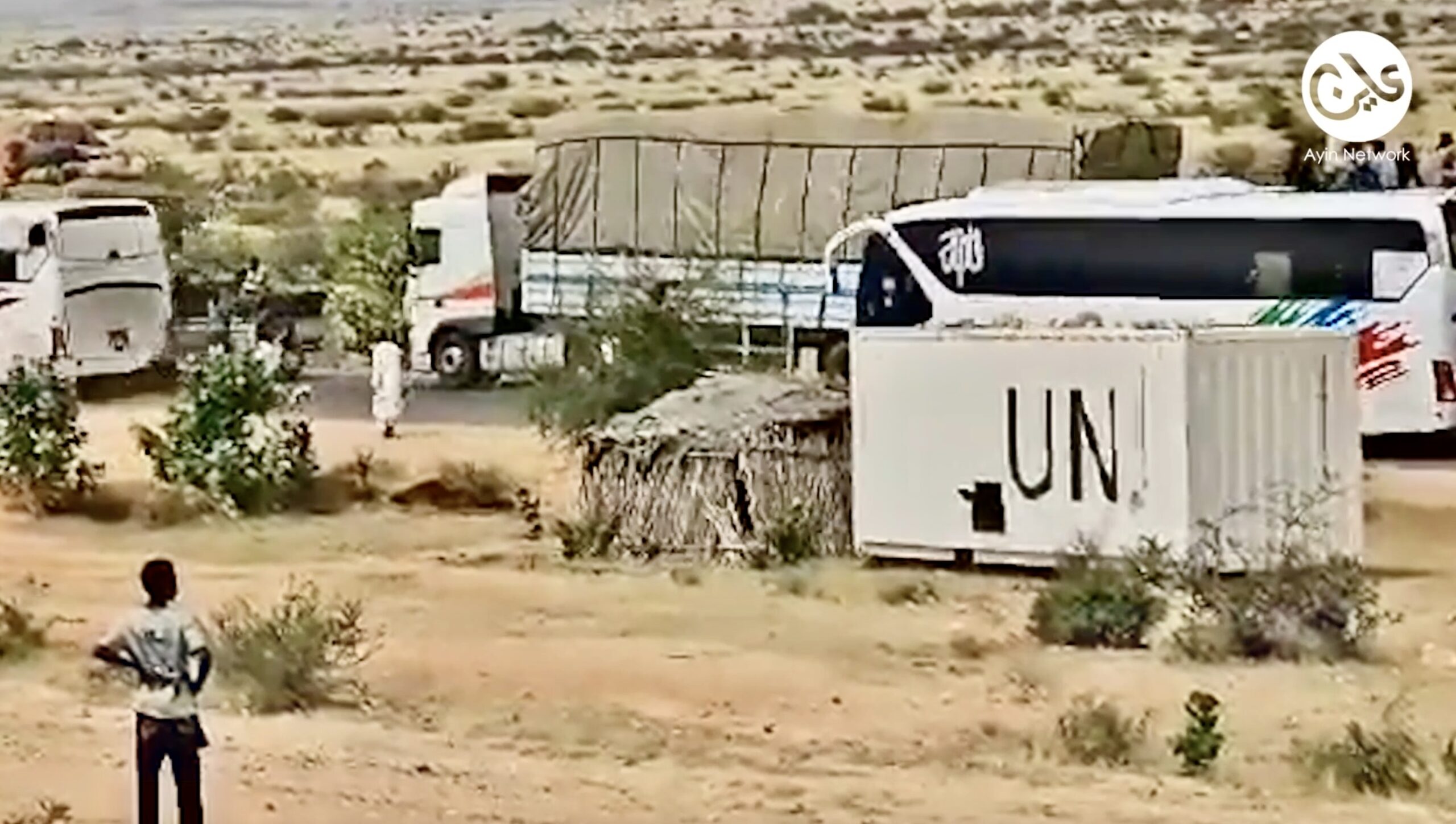
A strategic location
Al-Koma, located about 76 kilometres northeast of the city of Al-Fasher, connects eastern Sudan with the west and represents a meeting point for travel to the Darfur cities of Nyala, El-Geneina, and Zalingei. The town represents a lifeline for all the people of Darfur, as it is a crossing for cargo trucks coming from Dabba in the Northern State to the Darfur region. The civil administration that governs the region has declared its neutrality in the current war, local residents said.
The Al-Koma locality is still administered by an executive director appointed by the military-led North Darfur State government, backed by a strong system of native administration, local residents told Ayin. The Rapid Support Forces have not decreed any sort of control over the town. “What is happening has no justification because the state apparatus continues in Al-Koma locality, which is run by the executive director of the North Darfur State government,” Haren added.
“This area is free of any military camp or base, and members of the Rapid Support Forces pass through it like other travellers,” he added. According to Haren and other residents, the army has been targeting Al-Koma due to misleading online campaigns that claim the Rapid Support Forces (RSF) are using the town as a base to store and transport weapons. “The truth is, there are no RSF headquarters here, and all the airstrikes are carried out on civilian areas such as markets, hospitals, drinking water sources, and residential neighbourhoods.”.
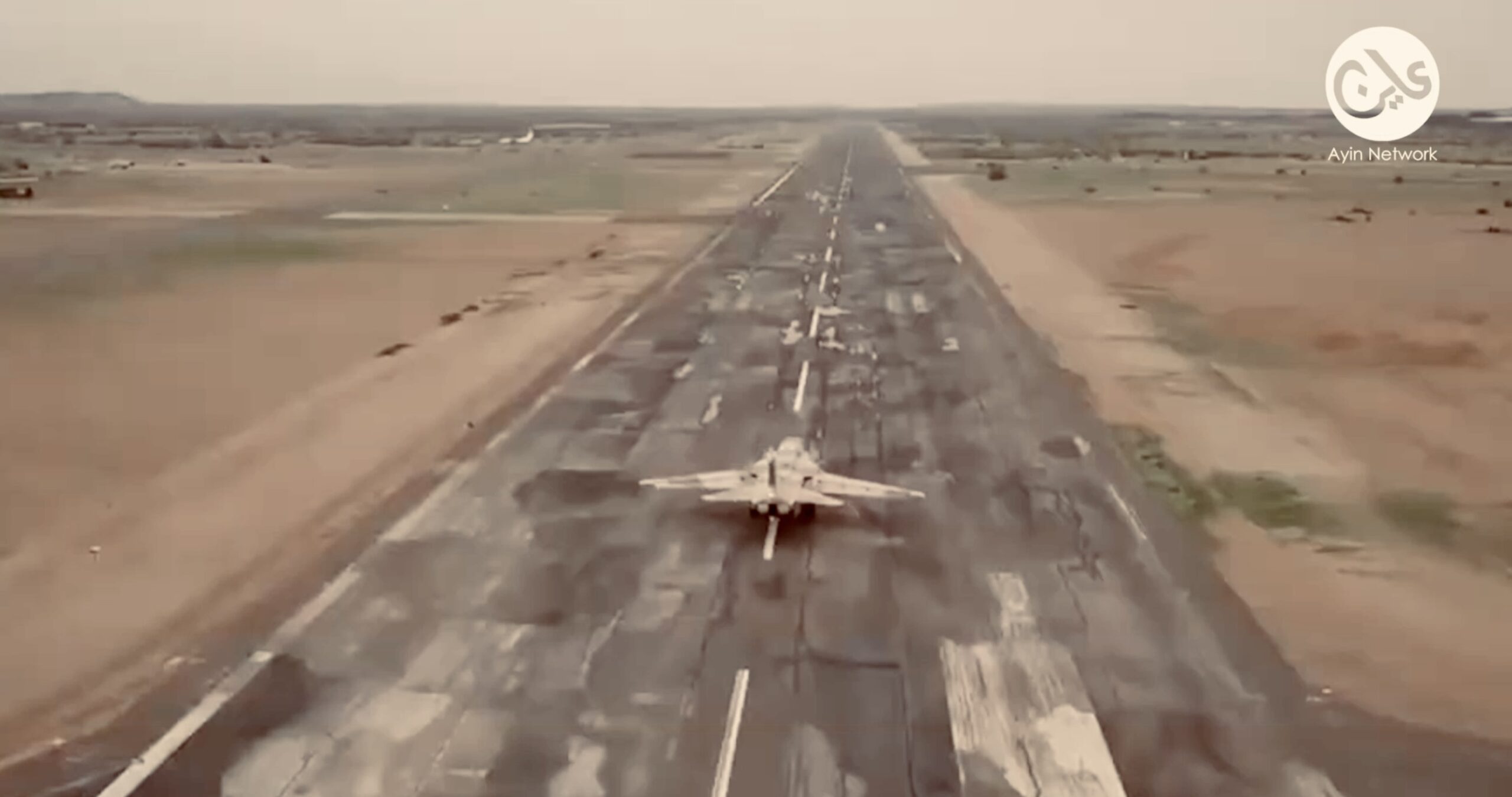
Kabkabiya
Kabkabiya, in turn, was subjected to intensive aerial bombardments, which began in Ramadan, April of this year. In seven months, military aircraft carried out 20 air raids on this city, which resulted in the death of 30 citizens, the injury of 70 others, and the destruction of 2 tanks of the main sources of drinking water, according to a census conducted by volunteers in the area. The airstrikes on Kabkabiya also put hospitals and health centres out of service, leaving behind catastrophic health conditions.
Kabkabiya is located about 270 kilometres west of the city of El Fasher; it is the second largest locality in North Darfur State in terms of urban and economic development, as well as population density. The Rapid Support Forces announced their control over it on the first day of the outbreak of the war in mid-April of last year.
“The area did not witness any military battles except for the first day of the outbreak of the war, when clashes occurred for only two hours, during which the Rapid Support Forces took over the army command,” says Samia Al-Tayeb*, an ERR volunteer in Kabkabiya. “Since then, the city has been living in safety to the point that it has become attractive to displaced people from Al-Fasher, Nyala, and other areas. However, the situation deteriorated when it began to be targeted by aircraft in Ramadan last April.”
The air force bombed the main hospital in Kabkabiya and a number of health centres, putting them out of service, leaving only one medical centre unable to provide the necessary care to thousands of residents. A mysterious disease in Kabkabiya has added to the crisis, with rising deaths among young adults aged 20–30. Limited healthcare facilities have failed to diagnose or treat the illness effectively.
According to local residents in the city, the army justifies its bombing of the area by saying that the Rapid Support Forces are using the city’s hospitals as a centre for treating their wounded, which was not denied by the sources who spoke to Ayin.
Community leaders and activists are calling for international intervention to stop the airstrikes and provide urgent humanitarian aid. “This is an absurd war between two generals, directed directly at the citizens, who are paying the price,” Omar said. “We call on both parties to stop fighting and have mercy on the civilians who are facing tragedies all over Sudan.”




